“Can you use antibacterial wet wipes on your bum?” When using wet wipes on sensitive areas like the bum, there are some important factors to consider. This article will explore these issues and provide tips for maintaining good hygiene when cleaning this sensitive area.
Learn more: 3 alcohol wet tissue that kills bacteria and is safe for the skin
No, you can not use antibacterial wipes on your bum. Some experts advise against using wet tissue wipes on delicate body areas such as the anus or perineum due to their potential skin irritation. These wipes can disrupt the natural pH balance of the skin in these areas, leading to irritation, itching, and even infection. And to better answer the question: “Can you use antibacterial wipes on your bum?” Follow our analysis below.
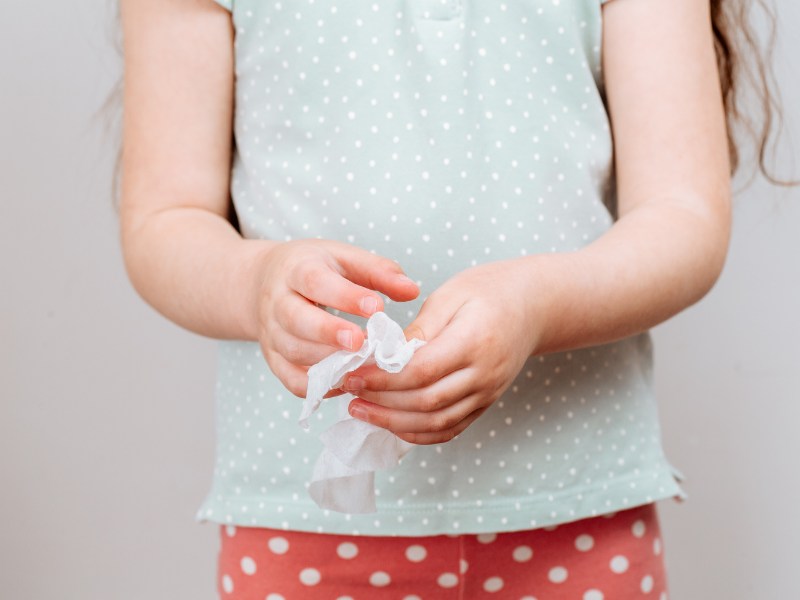
You can not use antibacterial wipes on your bum as they irritate the skin
Experts do not recommend using antibacterial wipes on the bum for several reasons:
Conclusion: “Can you use antibacterial wet wipes on your bum?” It is best to avoid using antibacterial wipes on the bum. Instead, pH-balanced cleansers or specialized wipes are designed for this purpose. It is also essential to consult with a healthcare professional if you have any concerns or questions about proper hygiene practices.
You may concern: Can you wipe with antibacterial wipes? 10 common mistakes!
Experts say that you should never use antibacterial wet wipes on your bum. Instead, your options are toilet paper, bidets, or baby wipes.
Toilet paper is generally considered a safe and effective alternative to antibacterial wipes for cleaning after a bowel movement. Toilet paper does not contain harsh chemicals or fragrances, making it less likely to cause skin irritation than antibacterial wipes. Furthermore, plain water and mild soap are more effective than antibacterial wipes in maintaining the natural balance of bacteria on the skin.
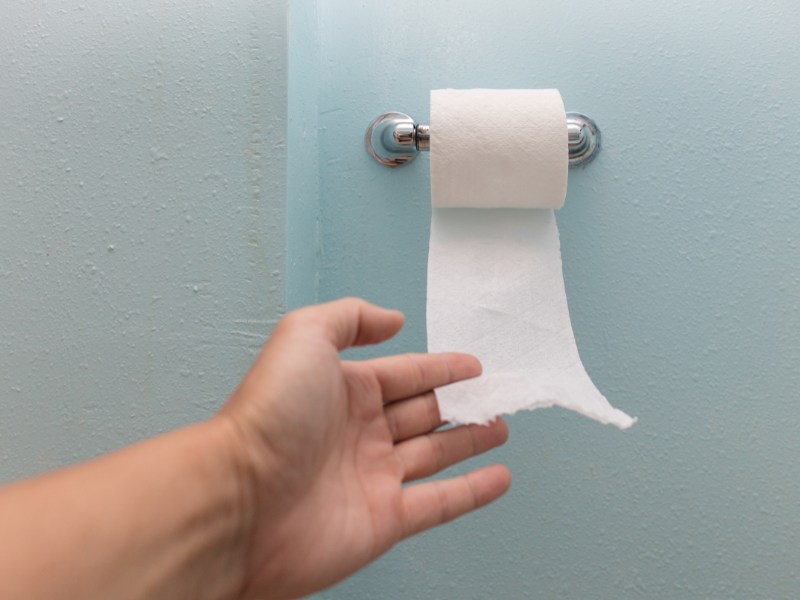
Using toilet paper to clean after a bowel movement helps reduce skin irritation
Learn more: Wet wipes vs Toilet paper: Advantages and Disadvantages
Using a bidet to clean after a bowel movement offers several advantages over antibacterial wipes.
A bidet can also be more gentle on the skin than antibacterial wipes. Most antibacterial wipes are safe, while others are not because they can contain harsh chemicals and fragrances that can cause irritation or other issues.
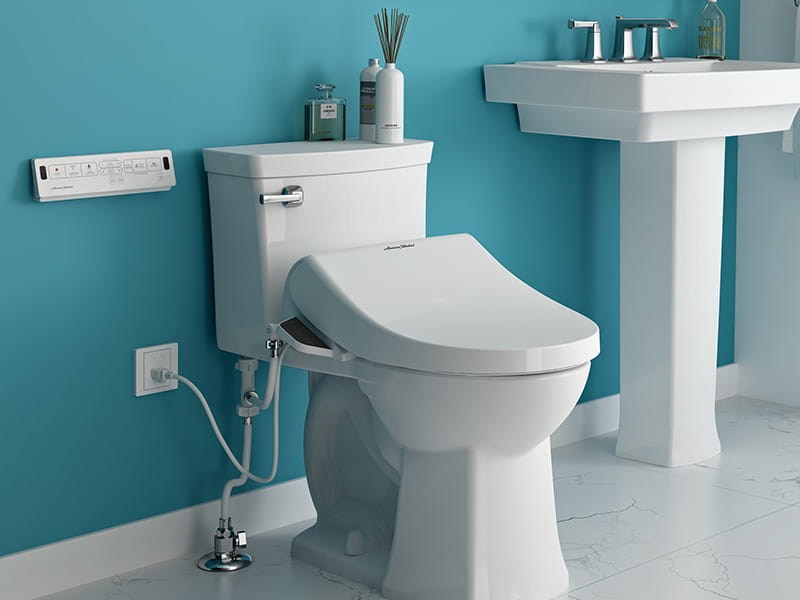
Using a bidet can be more gentle on the skin than antibacterial wipes.
Can you wipe your bum with antibacterial wipes? No. Using chemicals to clean your behind may result in a burning sensation. It is safer to use baby wipes for wiping purposes. Using baby wipes to clean after a bowel movement is common because they are designed for sensitive skin and formulated to be gentle and non-irritating.
Furthermore, using antibacterial wipes for cleaning after a bowel movement is unnecessary. The primary goal of cleaning after a bowel movement is removing faecal matter and cleansing the area. Regular baby wipes are sufficient for this purpose, and excessive use of antibacterial products can contribute to the development of antibiotic-resistant bacteria.
See more: Can wet wipes cause hemorrhoids? Here’s the truth
The Right Way to Wipe
After defecating, always wipe from front to back. Avoid any skin-to-skin contact with stool. Reach behind your back and between your legs, using plenty of crumpled or folded toilet tissue. Wipe backwards from the perineum, moving toward and past the anus.
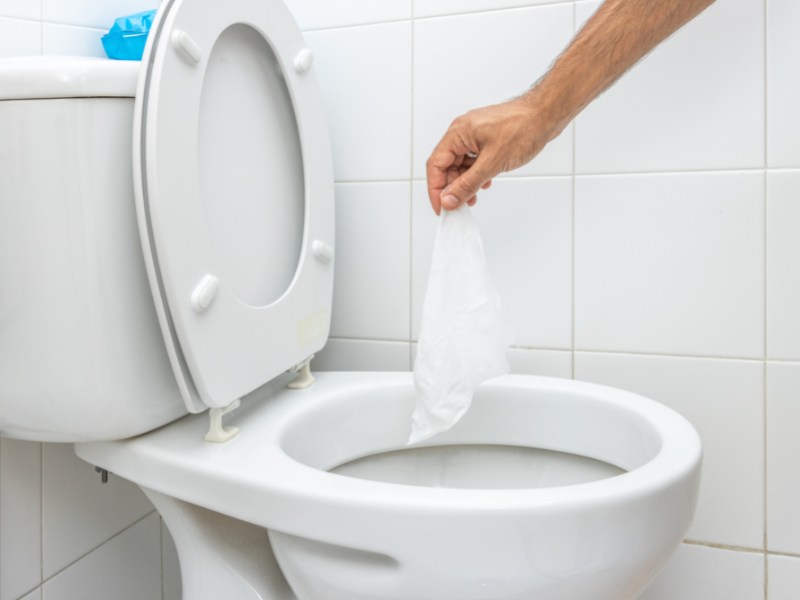
You should use toilet tissue to clean your skin after a bowel movement
At this time, can you wipe your bum with antibacterial wipes? No, you should use additional toilet tissue to clean your skin. Do not scrub the perianal area; this can cause microtears in the skin, and bacteria can enter through these small tears.
If someone cannot reach behind their backs because of weight, injury, or arthritis, they can reach between the legs instead. When wiping, always wash front to back and not back to front.
Cleaning from front to back is especially important for people with a vagina. This action prevents faecal matter from entering the urethra. Accidental exposure to faecal matter can lead to a urinary tract infection (UTI) caused by bacteria entering your urethra. If this happens, gently rinse the urethral area with cool water (but do not spray with a strong shower or flow). Drink plenty of fluids for the next few days to help flush any remaining bacteria from your urinary tract.
How to Wash Your Hands
Good hand washing can reduce the transmission of infectious organisms, such as hepatitis A. After washing your hands thoroughly, dry them with a clean towel or air-dry them.
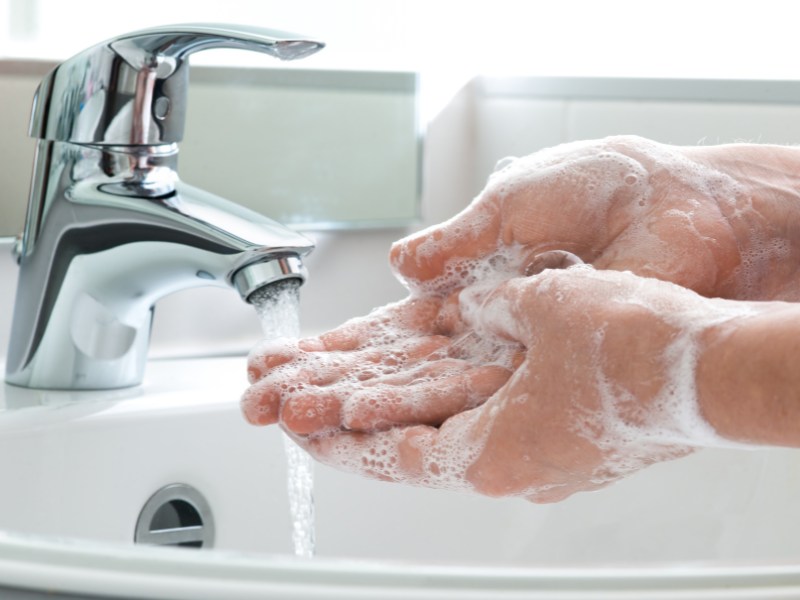
Hand washing can reduce the transmission of infectious organisms
The Centers for Disease Control and Prevention (CDC) recommends handwashing steps: Wet your hands with clean, running water, apply soap, and lather by rubbing your hands together. Lather the backs of your hands, between your fingers, under your nails, and your palms. Scrub for at least 20 seconds. Rinse thoroughly under clean, running water and dry using a clean towel or allow them to air dry.
When Wiping Is Not Enough
Keeping your anus clean can be difficult when diarrhoea is persistent or severe. In such cases, try using gentler baby wipes on the skin. If even gentle wiping causes discomfort, use a ball syringe (which can be bought at most drugstores) to clean the area. Others opt for a bidet or a hand shower to rinse faecal residue from the skin.
If you experience ongoing rectal pain between bowel movements, soak in a lukewarm tub with Epsom salt, and colloidal oatmeal added, which helps reduce inflammation in irritated skin. Avoid hot baths as they can dry out your skin; this may make the pain worse.
In conclusion, “Can you use antibacterial wet wipes on your bum?” It is best to avoid them due to the potential for harsh and irritating chemicals and opt for baby wipes, toilet paper, or bidets instead. If you have any further questions, please contact us with more details.
Dong Hiep Trading and Investment Joint Stock Company:
Other useful information: